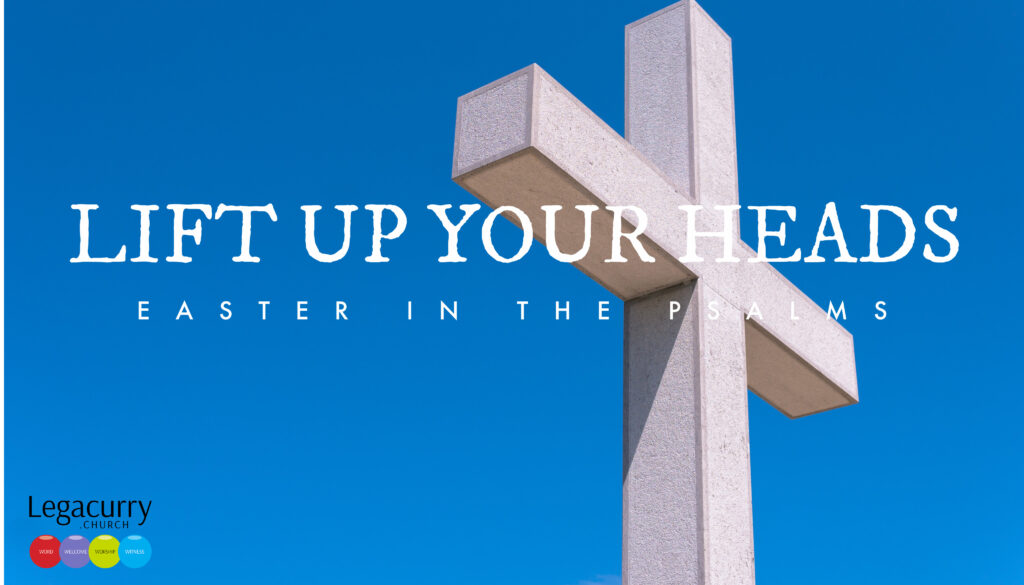
Reflecting on his cancer diagnosis in a helpful article for The Atlantic, pastor Timothy Keller writes that in the midst of his diagnosis:
‘The Bible, and especially the Psalms, gave voice to our feelings: “Why, O Lord, do you stand far off?” “Wake up, O Lord. Why are you sleeping?” “How long, O Lord? Will you forget me forever?”’
As we read the Psalms, we see this brutal honesty throughout. We have seen that the end of the Good Life is to dwell with God and that the path of the Good Life is to follow God’s instructions. Yet the Psalms never treat these truths as easy to believe or as some sort of protective force field or bubble, stopping us from ever suffering or struggling or doubting. The Psalms openly and honestly give voice to the pains and the questions that arrive in the life of every believer.
If the Psalms paint a picture for the believer of what the Good Life can look like, what do they offer the believer to hold onto when times of suffering and struggling inevitably arrive? The good news is that the Psalms don’t just give us words to use as we lament about the disappointments and devastations of life, but they hold out to us one in whom we can ultimately hope and trust. They point us to God’s anointed King — to the one who is both the embodiment and giver of the Good Life — they point us to King Jesus.
Who is this King of Glory?
It’s important when we read the Psalms that we remember that multiple things are happening at once. The original Psalm-writer, often David, is honestly expressing their emotional, physical, or mental response to their circumstances or towards God. So often we hear promises or references to a King that are referring to David’s own reign over Israel. Yet as the Holy Spirit inspired the Psalmists to write about their experiences, he was inspiring them in such a way that promises and references often have further significance than the writer themselves would even have known about. The Psalms frequently speak of God’s anointed King. There are times when this is making a direct reference to King David, yet it nearly always also points forward to a promised King far greater than David, who will rule and reign ultimately over God’s people.
We return to Psalm 1, which church father Jerome described as ‘the preface to the Psalms, as inspired to the Holy Spirit.’
Blessed is the one
who does not walk in step with the wicked
or stand in the way that sinners take
or sit in the company of mockers,
but whose delight is in the law of the Lord,
and who meditates on his law day and night. Psalm 1:1-2
This now familiar description of the Good Life shows us how we are to live as Christians. Yet there’s a problem, isn’t there? Despite being straightforward instruction, it often feels far from our present reality. We know we’re meant to be the one whose delight is in the law of the Lord and who meditates on his law day and night, yet despite our best intentions, we often find ourselves walking in step with the wicked or sitting in the company of mockers. So if Psalm 1 paints a picture of the Good Life that we are to measure up to, then it can feel much more like a burden than any sort of good news to us.
The Righteous King
When we read or sing this Psalm it is aspirational at best. When Jesus read or sang this Psalm, he was describing himself. Jesus was surrounded by the wicked, by sinners, and by mockers. He was tempted in every way as we are. Yet he followed the path of the Good Life, perfectly obeying his Father’s instructions as none of us have been able to. So as we read Psalm 1, we know that the description of the righteous one is not just something for us to aim at, but is perfectly embodied by the only truly righteous man to ever live – Jesus of Nazareth.
Having established what a perfect, righteous man would look like in Psalm 1, Psalm 2 then promises a righteous man who will be king:
6 “I have installed my king
on Zion, my holy mountain.”
7 I will proclaim the Lord’s decree:
He said to me, “You are my son;
today I have become your father.
8 Ask me,
and I will make the nations your inheritance,
the ends of the earth your possession. Psalm 2:6-8
We see that a righteous man perfectly follows God’s instructions and delights in his law. We see that a righteous king will come whose reign will not end. Jesus is the only man who lived whose life perfectly fulfilled the righteousness of Psalm 1 and whose reign lasts forever like the reign promised in Psalm 2. In Jesus we see the blessed one of Psalm 1 and the victorious king of Psalm 2. He is the only one who fits perfectly in both of these Psalms. As we continue to read the Psalms and as we read promise after promise of a coming anointed King, we know that this King ultimately must be Jesus.
Lift Up Your Heads
Keller writes later in his article:
‘Most particularly for me as a Christian, Jesus’s costly love, death, and resurrection had become not just something I believed and filed away, but a hope that sustained me all day.’
Jesus is the embodiment of the Good Life because he is the only righteous one who has lived a life of perfect obedience to the Father. The really good news though, is that Jesus is not just an example that we strive towards, but he is the anointed King who through his life, death, and resurrection, has won forgiveness for his people and gives that perfect record to us. He is the one who gives real life to us when we trust in him by faith. This is the hope that sustains us.
As we turn to the Psalms this Easter, in our services we will look at Psalm 118, 22, 23, and 24, which point us to the events of that first Easter. Though they may not mention Jesus by name, they clearly point to and anticipate what he would come to earth to do. The Psalms offer us the chance to lift up our heads because they deal honestly with our emotions, give words to our laments, show us how to live, and create a desire within us to dwell with God. But the Psalms most clearly lift up our heads as they point us to our Saviour and help us to fix our eyes on him. We see in God’s anointed King one who did not remain far off, but humbled himself by becoming one of us, by drawing near, and finally going to the cross for us. Ultimately, it is as we look to the embodiment and giver of the Good Life, that our heads are lifted from our sorrows and towards the one who brings us life and peace.


